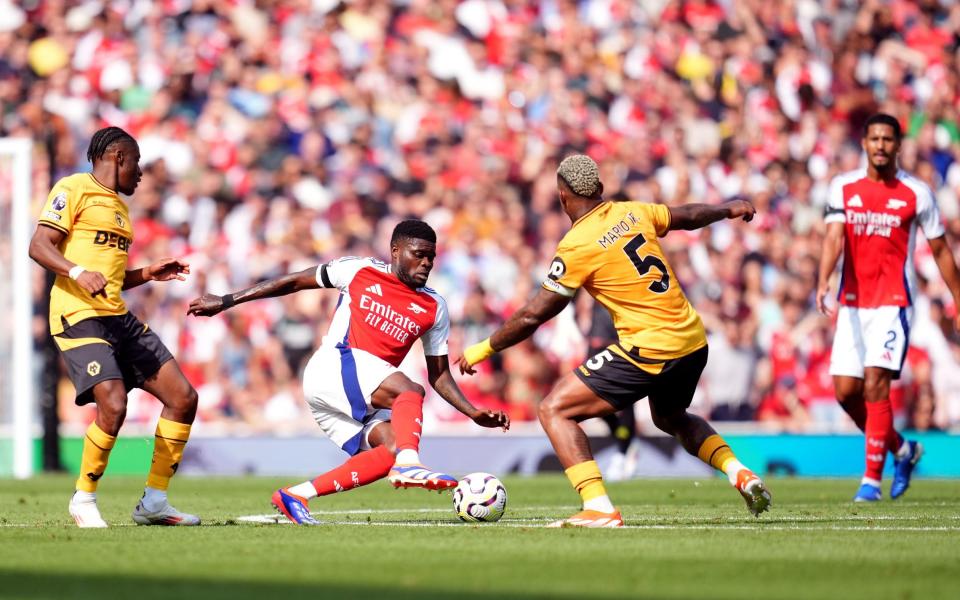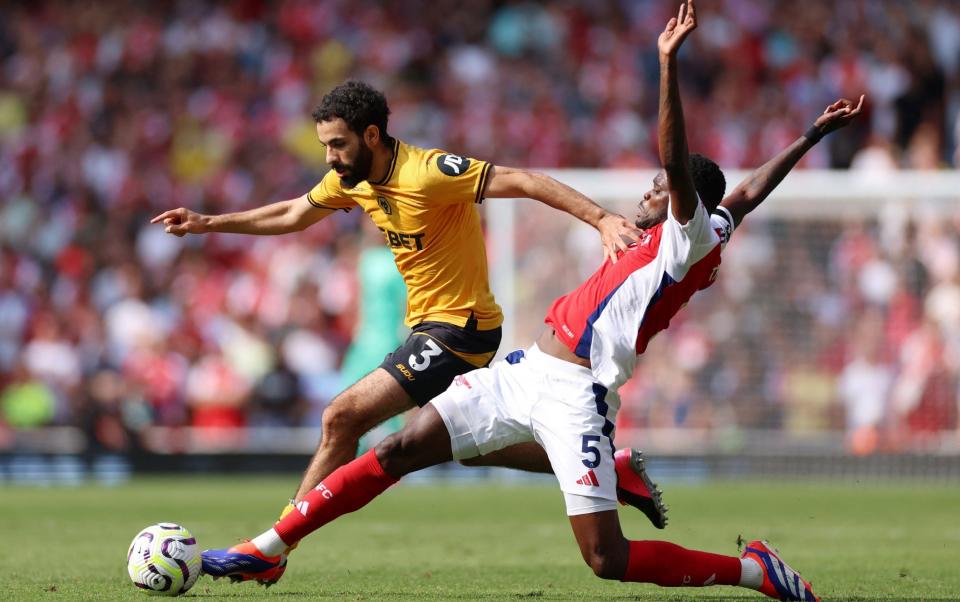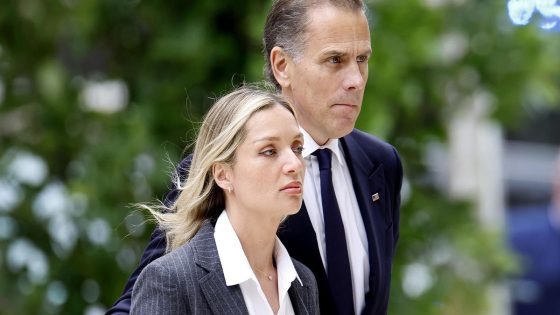Across the Arsenal squad, there are players who are either in their prime or approaching it. Declan Rice, Martin Odegaard and Kai Havertz are all 25, on the cusp of their best years. Bukayo Saka, Gabriel Martinelli, William Saliba and Jurrien Timber are 22 or 23, with bright futures ahead.
The club’s vision is for all of these players to grow and develop together, to hit their peaks in a glorious crescendo of footballing talent. This sense of a collective journey is perhaps the most striking aspect of Arsenal’s recent rise. Indeed, it is such a dominant theme that any player who is not part of that same bracket now looks increasingly like an outlier.
That is not necessarily a bad thing. In the case of Jorginho, aged 32, his added experience and wisdom is a large part of his value to the club. He is almost like a player-coach these days, guiding his team-mates through games and offering solutions to problems he has seen before.
But in the case of Thomas Partey, the only other player older than 30 in Arteta’s squad, it is hard to shake the feeling that Arsenal are moving in one direction and he is moving in another. If most of Arsenal’s players are coming into their best years, then Partey needs to prove he is not moving out of his.
Against Wolves on Saturday, Partey produced moments of game-controlling class from the base of midfield. The sort of moments that he offered so regularly in the 2022/23 campaign, when for the first half of the season he was perhaps the Premier League’s leading central midfielder.
But, not for the first time, there were also moments when Partey looked alarmingly off the pace.


In a poor spell for Arsenal after half-time, when Wolves were dominant and repeatedly came close to scoring, Partey struggled horribly to rediscover his passing range. Behind him, Saliba also lost his composure.
With Saliba, this was deeply unusual. With Partey, by contrast, it was what many Arsenal supporters have come to fear. On the club’s pre-season tour, in a defeat by Liverpool, Partey was considerably off the pace as he tried to close down the spaces in midfield. He looked then, as he looked in the second half against Wolves, like a player whose body was not quite executing what his brain was requesting.
Between the 55th and 74th minute, in a period of the match in which Wolves were largely on top, Partey surrendered possession three times in his own half. Arsenal were fortunate that those errors were not punished.
Asked afterwards about Partey and those issues, Mikel Arteta admitted: “Yeah, well, we had certain problems, especially in the second half with certain giveaways. It is part of the game as well, and things that we can do better to be more consistent, and have more security, more purpose and dominate the game better. We will get better.”
There is an obvious reason why Partey might have lost some of his old zip. His fitness issues in recent years have been numerous and, in certain cases, serious. Last season, he did not play a single match for Arsenal between early October and early March because of a thigh problem that required surgery.
That injury contributed to the feeling, for much of last season, that Partey had become Arsenal’s forgotten man. He was restricted to just nine starts in the Premier League, while the arrival of Rice meant there was a new midfield powerhouse in town. In the minds of many Arsenal supporters, Partey had become old news.
Yet it is clear that Partey, in the eyes of Arteta at least, remains a player of huge importance in this Arsenal squad. At the end of last season, when the title race against Manchester City was at the point of maximum stress, Partey returned to fitness and started all of the final five matches.


It was the ultimate demonstration of Arteta’s ongoing faith in the Ghana international and his blend of physical power and technical quality. When Partey is fit, Rice plays further forward. It is £105 million record signing Rice who is asked to change, to accommodate Partey. Not the other way around.
There is, though, a limit on how long such an approach might last if Partey cannot return to the physical levels of old. The clock is ticking for the 31-year-old, who has one year remaining on his contract, and it is relevant that Arsenal are inching closer to the signing of Real Sociedad midfielder Mikel Merino.
The Spaniard is more of a box-to-box player than a holding midfielder but his arrival, if a deal can finally be struck, would only add to the sense that Partey’s status as a key player is under serious threat. As the Arsenal train continues to power ahead, Partey must show he is still capable of keeping up.
Source Agencies


